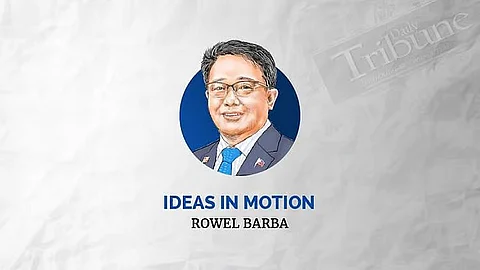
- NEWS
- the EDIT
- COMMENTARY
- BUSINESS
- LIFE
- SHOW
- ACTION
- GLOBAL GOALS
- SNAPS
- DYARYO TIRADA
- MORE

Every election season in the Philippines is marked by heated politics and even hotter voting precincts with long lines. And beneath it all are the often-overlooked sacrifices of the teachers who are on the frontlines, whose own lives are often on the line.
We like to tell ourselves that we value teachers. We applaud them on World Teachers' Day, give them a handful of chocolates, flowers and love letters. We call them our second parents, our heroes.
But come election season, we see them only as names on a deployment list – this year over 281,000 of them. We take them not as people with classrooms and families and bones that ache after 24-hour shifts, but as warm bodies to man machines, manage mobs, and absorb all the frustrations of voters and watchers.
What many do not know is that their exhaustion begins long before election day and long after the voting comes to a close.
Before the battle, teachers train like soldiers – learning the rules, adapting to new ones, undergoing simulations and troubleshooting. Then comes the long, sleepless night before election day, lining up at Comelec offices to pick up the materials, jostling through the confusion and chaos like it’s part of the syllabus.
While the voters come and go, thousands of teachers like Jerome “Teacher Jer” Bayao of Lemery Pilot Elementary School and Marlon Samson of Inchican Elementary School must stay on their feet, managing the chaos with little rest, proving once again that the success of our elections is due to the teachers.
As told on The EdLines, a startup news site focused on Philippine education, Teacher Jer, a Master Teacher II with 14 years of election service—12 as chairperson of the electoral board—described the experience as a continuous test.
From the moment they pick up the election materials, often as early as midnight, to the time the last vote is counted, teachers are under immense pressure. They deal with technical issues, impatient voters, and a system that demands perfection but offers little protection.
In Cavite, Teacher Marlon—also the chairperson of his electoral board with years of service—paints an even more vivid picture: hunger due to the non-stop responsibilities, sweltering heat in cramped classrooms turned precincts, and barely functioning fans. There’s no time to eat, use the restroom or even take a breather. If that weren’t enough, election board members must also manage unruly watchers and rule-breaking voters.
While government efforts like the joint agreement among the DepEd, Comelec, AFP and PNP aim to bolster teacher safety, and DepEd’s Election Task Force offers institutional support, more must be done. Better compensation, trauma-informed training, guaranteed legal protection and mental health services should be the baseline.
On election day, the educators are expected to be IT troubleshooters, security managers and government representatives all rolled into one while being paid a modest honorarium that hardly compensates for their time, stress and risk.
Yes, the risks are real. Heat stroke from the lack of ventilation. Exhaustion from the waves of stress. And sometimes, armed goons.
Ask the ghosts of Filomena Tatlonghari and Nelly Banaag who died during their election service.
Ask their colleagues who remember the sound of gunfire echoing in the school corridors meant to hear only children’s laughter. Ask the teachers who’ve been shouted at, threatened, pushed to the edge, and then handed a thin envelope marked "honorarium.”
This is no longer a civic duty. This is martyrdom dressed as volunteerism.
Indeed, if democracy had a spine, it would be made of chalk and patience and the deep sense of commitment to public service and the nation of our teachers.
